"That the commercial advantages Britain had enjoyed with the Colonies had contributed greatly to her late wealth and importance. That it is likely great part of our commerce will naturally fall to the share of France; especially if she favours us with this application [for a supply of arms and ammunition], as that will be a means of gaining and securing the friendship of the Colonies.”
~ Committee of Secret Correspondence: Instructions to Silas Deane, March 2, 1776, Founders Online
Debating Foreign Assistance
In 1776, debates in the Continental Congress and the French government led to the same conclusion: America and France needed to join forces to defeat Britain.
America’s Diplomatic Trump Card: Trade
Congress’ debates on foreign assistance emphasized open trade versus state-controlled commerce (mercantilism).
“Open your Ports to Foreigners. Your Trade will become of so much Consequence, that Foreigners will protect you.”
~ Notes of Debates in the Continental Congress, 1776. Feb. [16], Founders Online
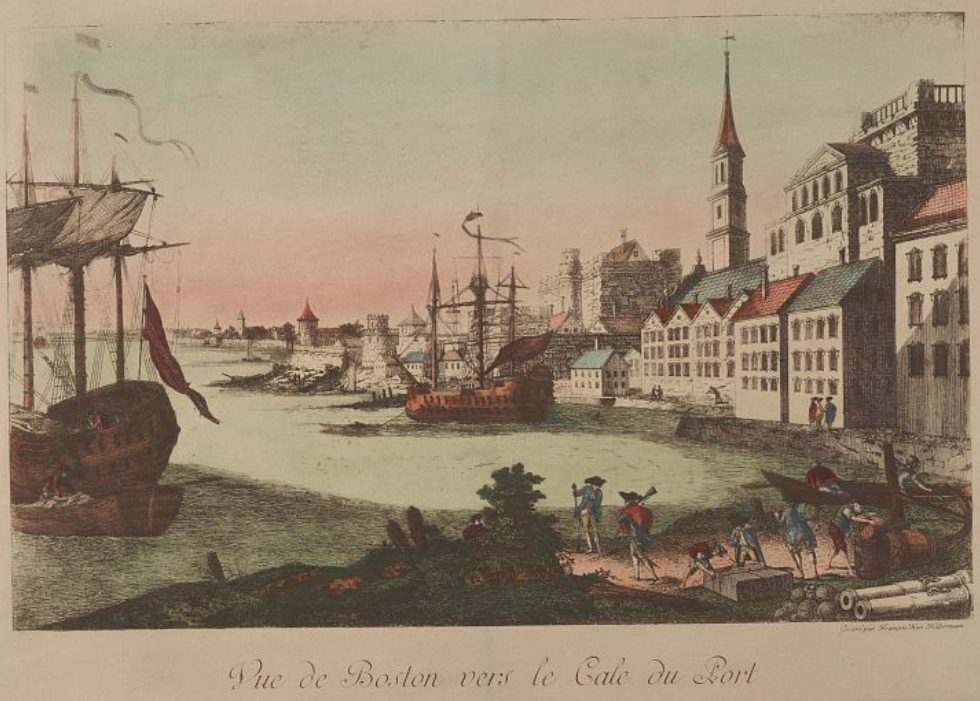
View of Boston by Franz Xaver Habermann, 177-, courtesy of Library of Congress
Congress instructed Silas Deane, their first foreign agent, to use commerce as a bargaining tool with France.
Initiating Covert Aid
In Louis XVI’s cabinet, French leaders debated “on the necessity to support the Americans and prepare for a war with England” (Maurepas, March 1776, in Doniol, I, 284). They were torn.
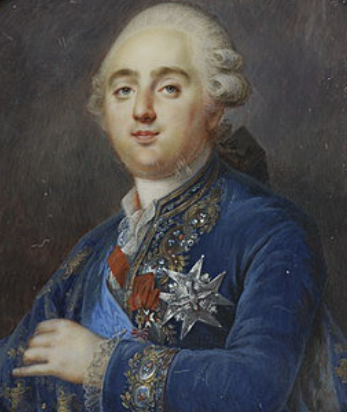
Louis XVI by Louis-Marie Sicard, 1782, courtesy of Musée du Louvre
The king was reluctant.
“War is the greatest of evils with which God afflicts men.”
~ Louis XVI, Maximes morales et politiques, 1766 in Crout, 367
The monarchy’s financial standing was alarming.
The French army and navy, though rebuilding, remained weak.
Louis XVI v. Vergennes
Vergennes passionately advocated war.
“We shall humiliate our natural enemy, a perfidious enemy who never knows how to respect either treaties or the right of nations; we shall divert to our profit one of the principal sources of her opulence […]; shall extend our commerce, our shipping, our fisheries; we shall ensure the possession of our islands, and finally, we shall re-establish our reputation, and shall resume amongst the Powers of Europe the place which belongs to us.”
~ Comte de Vergennes, quoted in Benjamin Franklin’s Private Letters, 3
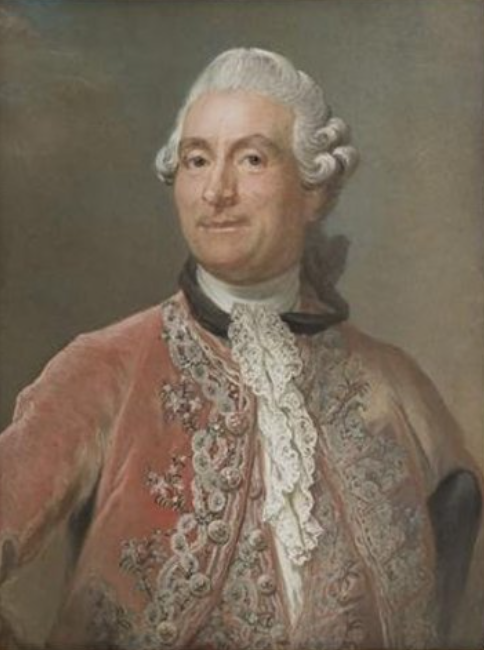
Monsieur Charles Gravier de Vergennes (1719-1787) by Gustaf Lundberg, 1771, courtesy of Musée du Louvre
Vergennes prevailed and secured three forms of covert assistance for the colonies.
Money
Vergennes “furnish[ed] a million of livres for the use of the English colonies. [...] [in an] operation [that] should not be detected, or at least imputed to the government.” (Comte de Vergennes to Louis XVI, May 2, 1776, in Wharton, II, 89-90)
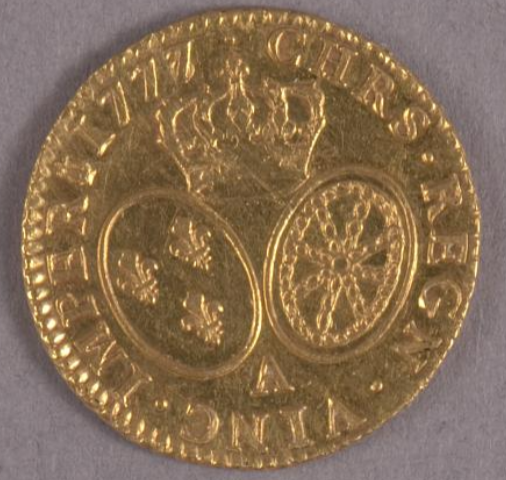
Louis d'Or, France, 1776-77, courtesy of Smithsonian
Military supplies
provided through “Roderique Hortalez & Cie - a fictitious company with a Spanish name - back of which stood [famous playwright] Beaumarchais, and behind him the French Minister of Foreign Affairs [Comte de Vergennes]” (Hill, 154).

French Charleville Model 1763 Flintlock Musket, courtesy of National Museum of American History
Soldiers
“Several young gentlemen of fortune, whose families are nearly connected with the court, are preparing to embark for America.”
~ Silas Deane to Congress, August 18, 1776, in Wharton, II, 124
France winked at these officially forbidden departures, including for Marquis de Lafayette, granted an American commission as Major-General.
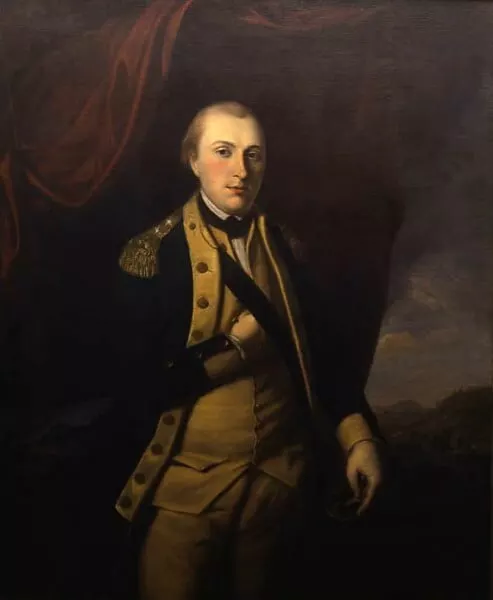
The Marquis de Lafayette by Charles Willson Peale, 1779, courtesy of Washington and Lee University
Britons were not fooled.
“Lord Stormont [...] protested to Vergennes: ‘In the history of the world there is no example of aid given to the rebels of a country one professes to be friendly with.’ When Vergennes blustered: ‘We cannot stop smugglers.’ Stormont retorted : ‘Do smugglers go in fleets, Sir?’” ~ John Hardman
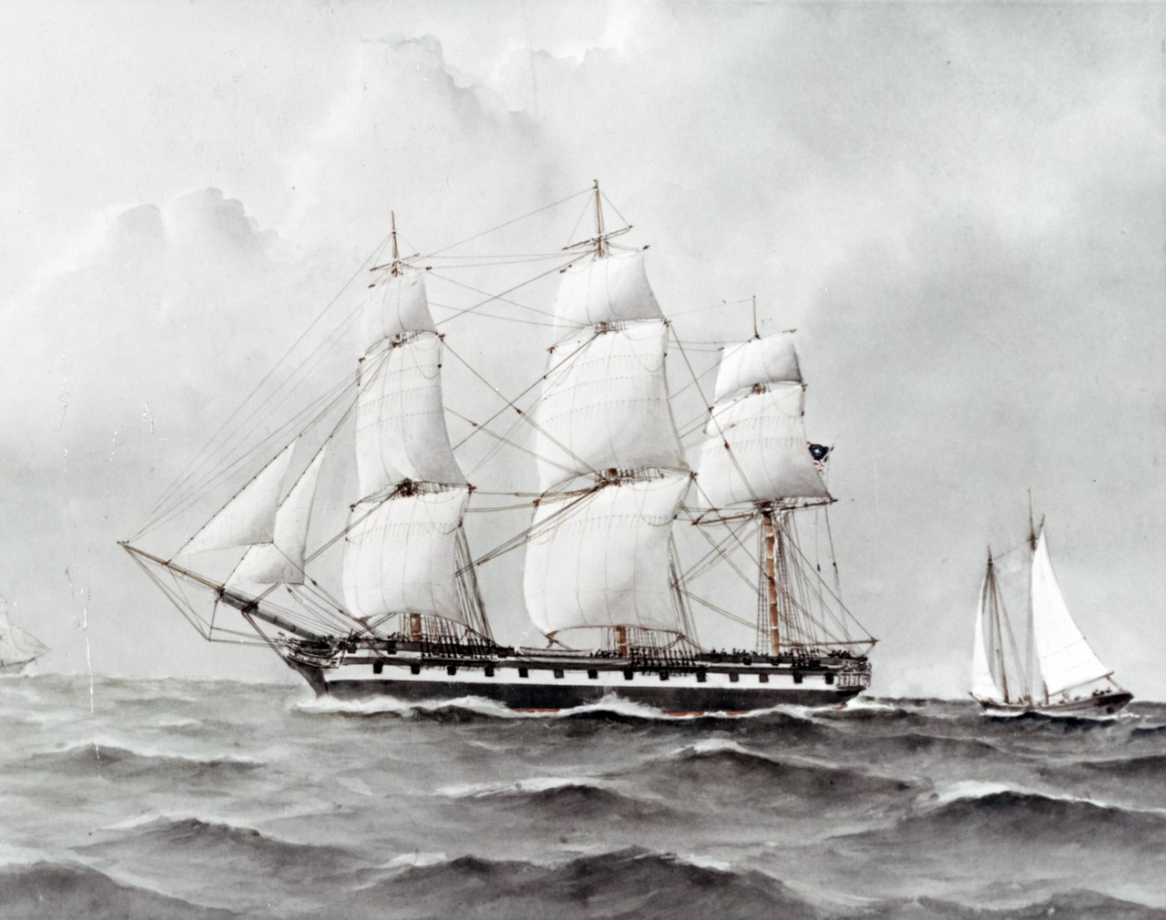
Bonhomme Richard, ex-Duc de Duras, by E. Tufnell, courtesy of Naval History and Heritage Command
France was fighting a proxy war against Britain.